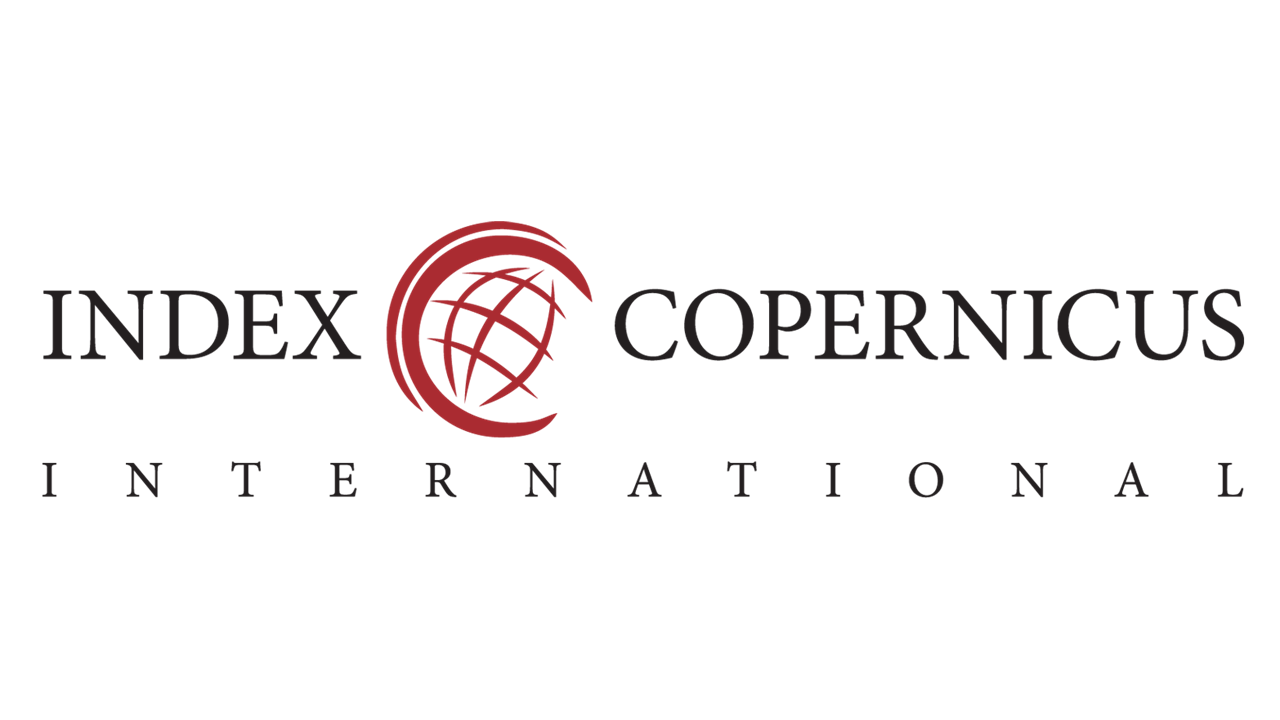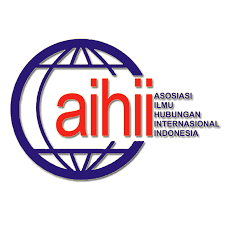JAPANESE GOVERNMENT REASONS BEHIND THE REMOVAL OF SOUTH KOREA FROM PREFERENTIAL WHITELIST: A MERCANTILISM PERSPECTIVE
DOI:
https://doi.org/10.31315/jsdk.v14i2.6699Abstract
After a series of mutual whitelist exemption between the East Asian countries, Japan and South Korea since the second half of 2019, the happening of trade dispute cannot be avoided. This study aims to find the reasons behind the Japanese government decision to remove South Korea from Japan’s preferential whitelist. Through qualitative method, this study uses the mercantilism perspective of International Political Economy (IPE) combined with historical perspective of Japan and South Korea since their first encounter during the timeline of World War until the present day, especially through economic context as the theoretical framework. Therefore, this study asserts that Japan, as a country which claimed that it applied trade liberalization, also have the mercantilism ideas projection on their foreign policy by intervening the economic activities of the state, in which economy – as a form of soft power – is a crucial factor to make Japan as a strong state and crucial actor in international political stage, as the rivalry in global technology market with South Korea and strategic alliance with the United States needs to be prioritized by the Japanese government in order to protect its national interest as a state with a strong economy power after the massive economic growth of its fellow East Asian country, South Korea, and the high interdependency with South Korea especially in the 2000s era. The hypothesis can be proven through the weakening of South Korea technology and electronic integrated circuit export after their removal from Japan’s preferential whitelist and the growing favoritism by the United States, which made the Japanese government successfully achieve their national interest.
References
Anggito, A., & Setiawan, J. (2018). Metodologi Penelitian Kualitatif (E. D. Lestari (ed.); 1st ed.). CV. Jejak.
Asian Development Bank. (2020). 2020 Asian Development Bank Annual Report. https://doi.org/http://dx.doi.org/10.22617/FLS210109
Asih, K. N., & Suksmonohadi, M. (2019). Ketegangan Jepang-Korea Selatan dan Dampaknya pada Perekonomian. In Departemen Internasional (Ed.), Perkembangan Ekonomi Keuangan dan Kerjasama Internasional (III, pp. 113–117). Bank Indonesia. http://www.lib.ibs.ac.id/repository/PEKKI-Edisi-III-2019.pdf
BBC News. (2015). “Comfort women”: Japan and South Korea Hail Agreement. https://www.bbc.com/news/world-asia-35190464
Bermingham, F., & Jeong-ho, L. (2019, August 23). South Korea’s Economy Facing ‘Perfect Storm’ as Japan Trade Dispute Continues and Exports Plunge. https://www.scmp.com/economy/global-economy/article/3023957/south-koreas-economy-facing-perfect-storm-japan-trade
Bolton, J. R. (2020, August 28). Abe Will be Missed. He Tethered Trump Somewhere Next to Reality. https://www.washingtonpost.com/opinions/2020/08/28/john-bolton-shinzo-abe-trump/
Booth, A., & Deng, K. (2017). Japanese Colonialism in Comparative Perspective. Journal of World History, 28(1), 61–98. https://doi.org/10.1353/jwh.2017.0002
Choi, B., & Oh, J. S. (2021). Politics of East Asian Free Trade Agreements. In Politics of East Asian Free Trade Agreements (1st Editio). Routledge. https://doi.org/10.4324/9780429298585
Cohn, T. H. (2016). Global Political Economy (7th Editio). Routledge. https://doi.org/10.4324/9781315659695
Deacon, C. (2021). (Re)producing the ‘History Problem’: Memory, Identity and the Japan-South Korea Trade Dispute. Pacific Review, 0(0), 1–32. https://doi.org/10.1080/09512748.2021.1897652
Drezner, D. (2021). Power and International Relations: a Temporal View. European Journal of International Relations, 27(1), 29–52. https://doi.org/10.1177/1354066120969800
Endo, H. (2019). Japan Strengthening Export Controls against South Korea, May Leave China as Sole Winner in 5G Competition. https://grici.or.jp/320
Envall, H. (2017). Japan: From Passive Partner to Active Ally. In M. Wesley (Ed.), Global Allies: Comparing US Alliances in the 21st Century (pp. 15–30).
Hattori, R., & Leonard, G. B. (2021). Eisaku Satō , Japanese Prime Minister, 1964-72: Okinawa, Foreign Relations, Domestic Politics and the Novel Prize (1st ed.). Routledge.
Hook, G. D., Gilson, J., Hughes, C. W., & Dobson, H. (2012). Japan’s International Relations: Politics, Economics and Security (3rd ed., Vol. 44). Routledge.
Hosoe, N. (2021). Impact of Tighter Controls on Japanese Chemical Exports to Korea. Economic Modelling, 94(January), 631–648. https://doi.org/10.1016/j.econmod.2020.02.006
International Monetary Fund. (2021). Japan and the IMF. https://www.imf.org/en/Countries/JPN
Japan External Trade Organization. (2004). 2004 JETRO White Paper on International Trade and Foreign Direct Investment. https://www.jetro.go.jp/ext_images/en/reports/white_paper/2004.pdf.
Japan External Trade Organization. (2019). Japan-U.S. Investment Report. https://www.jetro.go.jp/usa/japan-us-investment-report-2020.html
Kalinova, K. (2020, February 17). Japan–South Korea Tensions Show Little Sign of Easing. The Interpreter. https://www.lowyinstitute.org/the-interpreter/japan-south-korea-tensions
Kim, G. (2017). Korea’s Economic Relations with Japan. Korea’s Economy, 31, 23–29.
Kim, K. (2020, February 12). Japan Takes Issue with Hyundai Heavy-Daewoo Shipbuilding Deal. https://en.yna.co.kr/view/AEN20200212009800320
Kim, T. (2019, August 3). Thousands of South Koreans Protest Japanese Trade Curbs. AP News. https://apnews.com/article/d504e9e3dd504ed5801a69d3f3abe17b
Kuong, T. (2018). Legal Assistance in the Japanese ODA: The Spark of a New Era. Asian Journal of Law and Society, 5(2), 271–287. https://doi.org/10.1017/als.2018.31
Magnusson, L. (2015). The Political Economy of Mercantilism. The Political Economy of Mercantilism, 1–230. https://doi.org/10.4324/9781315694511
METI of Japan. (2020). The WTO Panel Came to a Decision that the Republic of Korea’s Measure for Extending Imposition of Anti-Dumping Duties on Stainless Steel Bars Originating from Japan is Inconsistent with the WTO Agreement. https://www.meti.go.jp/english/press/2020/1201_001.html
METI of Japan. (2021a). Internal Compliance Programs (ICPs). http://www.meti.go.jp/policy/anpo/englishpage/icp.pdf
METI of Japan. (2021b). Update of METI’s Licensing Policies and Procedures in Relation to the Republic of Korea. https://www.meti.go.jp/policy/external_economy/export_control_korea/index-en.html
Ministry of Finance of Japan. (2021). Total Value of Exports and Imports (1950-). https://www.customs.go.jp/toukei/suii/html/nenbet_e.htm
Ministry of Foreign Affairs of Japan. (2017). U.S.-Japan Alliance Joint Statement. https://www.mofa.go.jp/mofaj/files/000227768.pdf
Ministry of Foreign Affairs of Japan. (2020). Issuance of Panel Report on “Korea – Sunset Review of Anti-Dumping Duties on Stainless Steel Bars” in the WTO Dispute Settlement Proceedings. https://www.mofa.go.jp/press/release/press6e_000252.html
Ministry of Foreign Affairs of Japan. (2021). ODA and the Asian Currency and Financial Crisis. https://www.mofa.go.jp/policy/oda/summary/1998/3.html
Nye, J. (2017). Soft Power: the Origins and Political Progress of a Concept. Palgrave Communications, 3(1), 2016–2018. https://doi.org/10.1057/palcomms.2017.8
O’Brien, R. C. (2021). A Free and Open Indo-Pacific. https://trumpwhitehouse.archives.gov/wp-content/uploads/2021/01/OBrien-Expanded-Statement.pdf
Park, C. H. (2019). Expanding Spirals of South Korea-Japan Conflict. Atlantic Council, 4–7. http://www.jstor.com/stable/resrep20930.5
Rosyidin, M. (2014). Soft Diplomacy SBY dalam Konflik Indonesia-Malaysia Soft Diplomacy SBY dalam Konflik Indonesia-Malaysia: Studi Kebijakan SBY terhadap Pelanggaran Kedaulatan oleh Malaysia di Perairan Bintan Tahun 2010. Jurnal Kajian Wilayah, 5(1), 3–22.
Shin, M. (2021). Conflict Between South Korea and Japan Surges Again With Court’s ‘Comfort Women’ Decision. https://thediplomat.com/2021/01/conflict-between-south-korea-and-japan-surges-again-with-courts-comfort-women-decision/
Sugihara, J. (2019). Japan Officially Ousts South Korea from Export Whitelist. https://asia.nikkei.com/Spotlight/Japan-South-Korea-rift/Japan-officially-ousts-South-Korea-from-export-whitelist
Sugiyama, S. (2020). PM Suga Talks with Moon for First Time but Signals No Fresh Start. https://www.japantimes.co.jp/news/2020/09/24/national/politics-diplomacy/japan-suga-south-korea-moon-first-call/
Takenaka, K., Leussink, D., & Dolan, D. (2020, August 31). Japan’s Abe Tells Trump Strengthening of Alliance Will Not Change. https://www.reuters.com/article/us-japan-politics-abe-trump-idUSKBN25R0BW
The Global Economy. (2021). South Korea High-tech Exports. https://www.theglobaleconomy.com/South-Korea/High_tech_exports/
The Observatory of Economic Complexity. (2021). South Korea (KOR) and Japan (JPN) Trade. https://oec.world/en/profile/bilateral-country/kor/partner/jpn?dynamicBilateralTradeSelector=year2001
Trend Economy. (2021). Annual International Trade Statistics by Country (HS02): Korea. https://trendeconomy.com/data/h2/Korea/8542
Wi, T., & Chang, I. (2016, March 23). “1965 Korea-Japan agreement should be re-estimated.” https://www.korea.net/NewsFocus/History/view?articleId=134245
World Bank. (2017). Top 8 Countries Voting Power. https://finances.worldbank.org/Shareholder-Equity/Top-8-countries-voting-power/udm3-vzz9
World Trade Organization. (2018, December 12). DS571: Korea — Measures Affecting Trade in Commercial Vessels (Japan). https://www.wto.org/english/tratop_e/dispu_e/cases_e/ds571_e.htm
World Trade Organization. (2019, April 26). DS495: Korea — Import Bans, and Testing and Certification Requirements for Radionuclides. https://www.wto.org/english/tratop_e/dispu_e/cases_e/ds495_e.htm
World Trade Organization. (2020, March 27). DS594: Korea - Measures Affecting Trade in Commercial Vessels (second complaint) (Japan). https://www.wto.org/english/tratop_e/dispu_e/cases_e/ds594_e.htm
Yamazaki, M., Yang, H., & Park, J. (2019, July 8). The High-tech Trade Dispute Rooted in Japan’s Wartime History. https://www.reuters.com/article/us-southkorea-japan-laborers-explainer-idUSKCN1U31D1
Yang, H. (2019). South Korea Removes Japan from Fast-track Trade “White list.” https://www.reuters.com/article/us-southkorea-japan-whitelist-idUKKBN1W21T2
Yang, H., & Park, J. (2019). Japan-South Korea Gloom Spurs Worries of “Never Seen Before” Chip Price Spike. https://www.reuters.com/article/us-southkorea-japan-laborers-chips-analy/japan-south-korea-gloom-spurs-worries-of-neverseen-before-chip-price-spike-idUSKCN1UD0ZL
Yani, Y. M., & Lusiana, E. (2018). Soft Power dan Soft Diplomacy. Jurnal Tapis: Jurnal Teropong Aspirasi Politik Islam, 14(2), 48–65. https://doi.org/10.24042/tps.v14i2.3165
Yuliani, W. (2018). Metode Penelitian Deskriptif Kualitatif Dalam Perspektif Bimbingan dan Konseling. Quanta, 3(1), 9–19. https://doi.org/10.22460/q.v1i1p1-10.497
Zhang, M. (2018). Proceeding in Hardship: the Trilateralism–Bilateralism Nexus and the Institutional Evolution of China–Japan–South Korea Trilateralism. Pacific Review, 31(1), 57–75. https://doi.org/10.1080/09512748.2017.1310751
Downloads
Published
Issue
Section
License
1. Copyright of this journal is possession of Editorial Board and Journal Manager, by the knowledge of the author, whilst the moral right of the publication belongs to the author.
2. The legal formal aspect of journal publication accessibility refers to Creative Commons Atribusi-Non Commercial-No Derivative (CC BY-NC-SA), implies that publication can be used for non-commercial purposes in its original form.
3. Every publication (printed/electronic) are open access for educational purposes, research, and library. Other than the aims mentioned above, editorial board is not responsible for copyright violation











